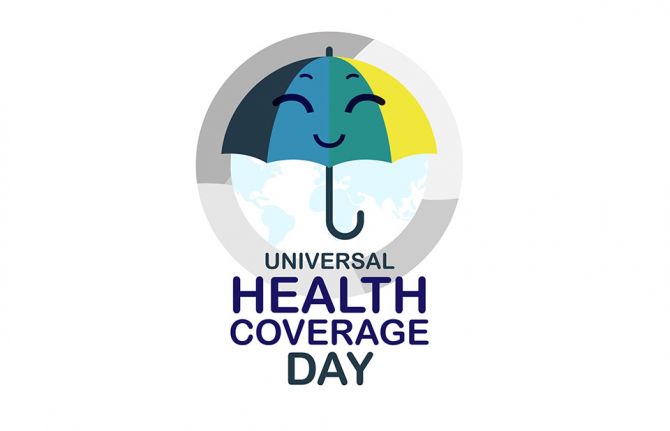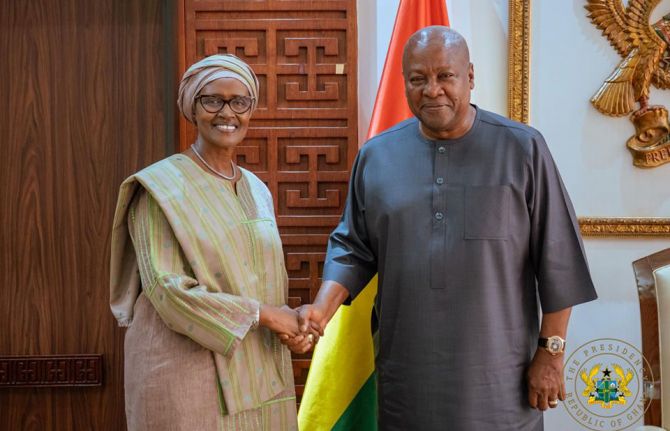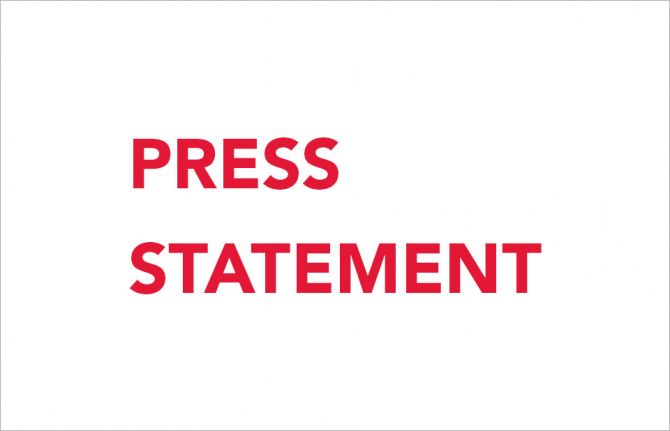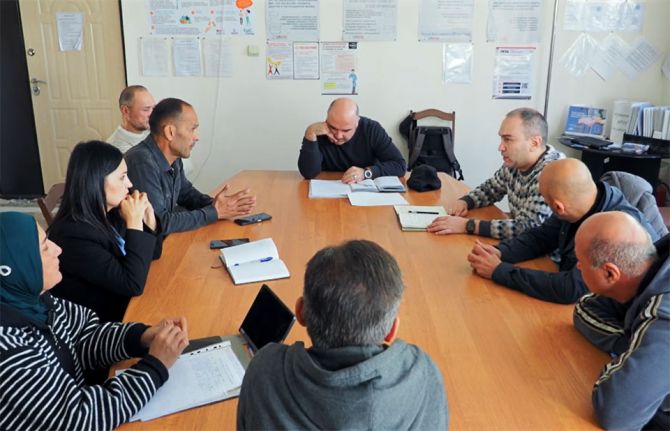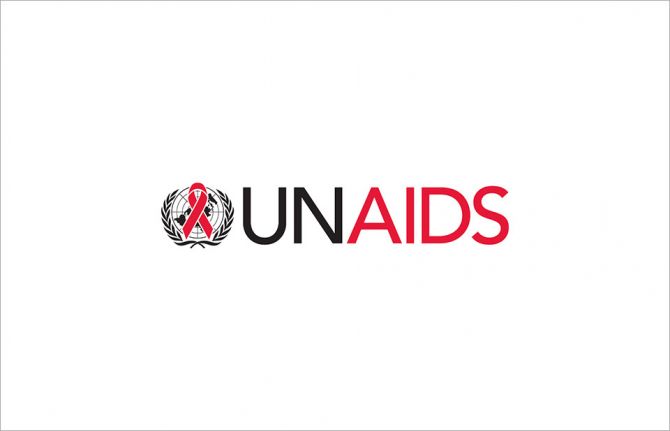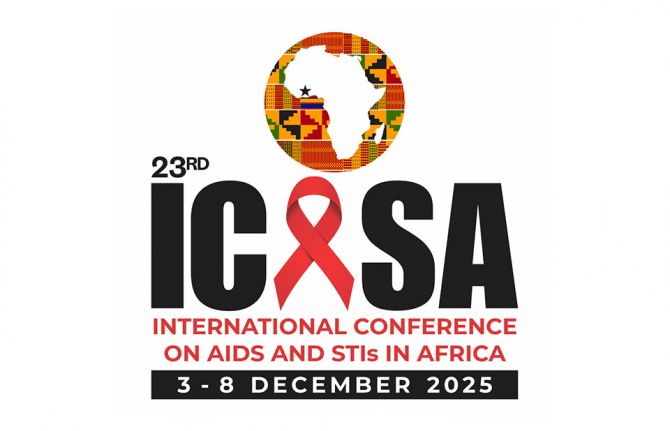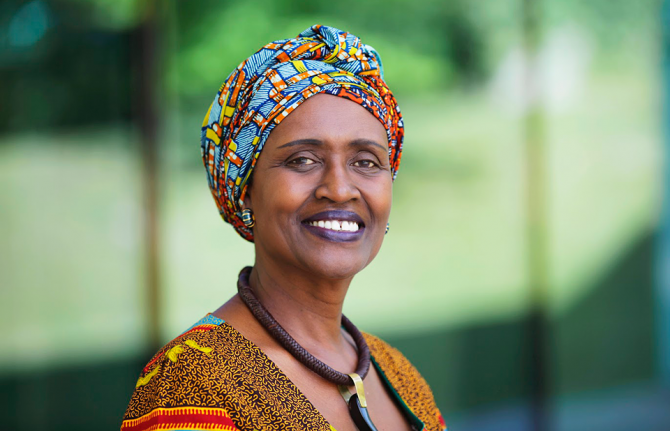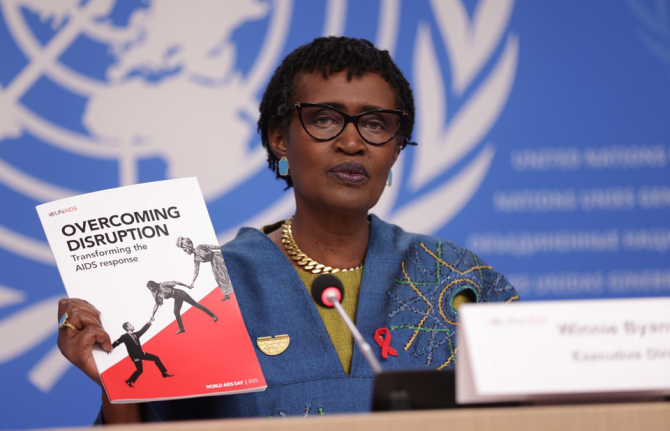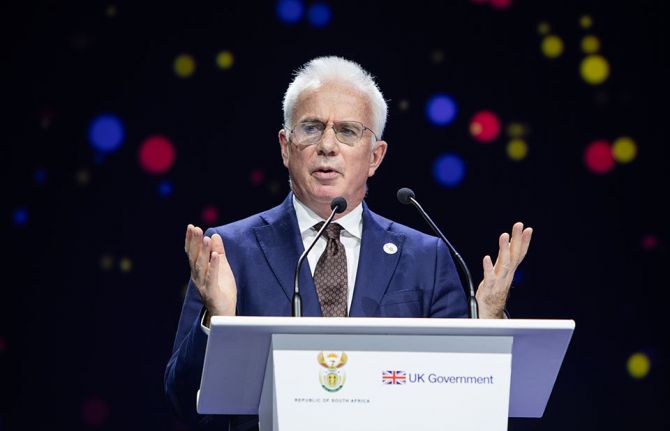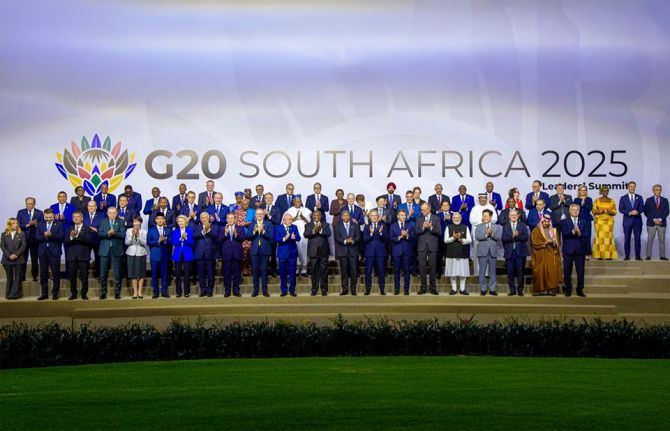
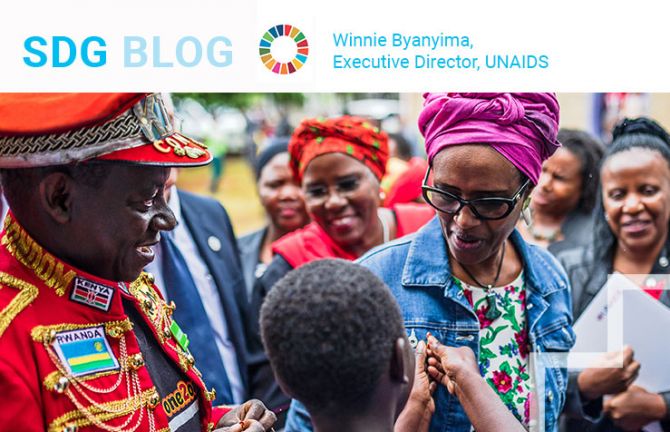
Opinion
We must act together to beat COVID-19 in Africa
03 May 2020
03 May 2020 03 May 2020The COVID-19 outbreak has been placing unprecedented strains on sophisticated health systems in Europe and Asia, with overstretched medical staff struggling to treat their patients and intensive care facilities overwhelmed in rich countries. With cases rising in Africa, concerns are increasing on the impact on fragile health systems there. This crisis is already exposing glaring inequalities between the rich and the poor in the developed world, and it is about to reflect even greater inequalities between the North and the South.
This health crisis, like others, is hitting the poorest and the most vulnerable the hardest, especially in Africa. What does social distancing mean in Africa’s congested townships, its packed markets and buses. How will people wash their hands several times a day to protect themselves from the virus without having access to water and basic sanitation? And what does that mean for women and girls who bear the daily burden of hauling water from rivers and wells for their households? How will a mother choose between going to work to put food on the table or staying at home with a cough or a fever? How do we tell informal workers, taxi drivers and all those who operate in the platform economy and live hand-to-mouth not to go to work?
We need to act now! There are four things we must do urgently: scale up testing and isolate infected people and communities, invest in health and protect our healthcare workers, focus on the community to ensure that the community response is strong, and have a constant supply chain.
The Africa Centre for Disease Control and Prevention estimates that 10 million testing kits will be necessary to respond to COVID-19 effectively over the next three months. Hundreds of millions of personal protective items such as face masks, protective gowns and gloves will also be needed. At a time when there is a global demand for these medical supplies, Africa must not be left behind. As we have seen in other countries, the best way to reduce infections and deaths is to test, treat and isolate infected people and communities to contain the virus. So, the supply of testing equipment and access to testing must be the priority.
A lack of investment in Africa’s social infrastructure, including in its health systems, mounting debt and massive corporate tax dodging has left the continent ill-prepared to face this coming emergency. Without publicly provided health care, people are left exposed to disease. User fees for accessing health services deny ordinary people their right to health. This is the time to abolish them. Rich countries are rightly pumping billions of dollars into their own economies and social security systems to keep people and businesses afloat, but will there be massive coordinated international financial support for the developing countries to fight Covid-19? We are in this together. Nothing but a global response will defeat this aggressive virus.
In responding to the HIV epidemic, community-led services have been core to our most important advances in preventing new infections and getting people on treatment. In the response to COVID-19, communities will no doubt step into the breach and public health authorities must engage with them now and build trust for the upcoming battle. We will not win without communities. It is communities who will design and implement their own context specific prevention measures, in markets, in buses, at funerals. As we have seen in the AIDS response, it will most often be women who will lead the charge in terms of caring for the sick and making sure that their children and communities are as safe as possible. We must ensure that resources flow to them so that they can carry on their important work, that they are fairly compensated and that their families are financially secure.
And the response must respect the human rights of the most vulnerable. There have already been incidents all over the world where individuals or communities are being blamed for the virus. This must stop. It’s wrong and counter-productive for the wider public good. Let us learn the lessons of the AIDS response and know that stigma and discrimination will hold us back in getting to grips with this pandemic.
In addition, to make sure that medicines continue to reach people in need, we must ensure the security of the global supply chain in this period. UNAIDS is working closely with all its partners to make sure that essential medicines and medical supplies continue to get to where they are most needed. We will continue to do so.
I wish we were in a different place. That everyone had the right to health and that we were in a stronger position to face this new challenge. That debate will continue and my voice will stay strong. For now, we must do the best we can for our communities.
Let us help and support each other during this time – we are all in this together and we will beat this virus through solidarity, compassion, and kindness.
Winnie Byanyima, UNAIDS Executive Director
UNAIDS
The Joint United Nations Programme on HIV/AIDS (UNAIDS) leads and inspires the world to achieve its shared vision of zero new HIV infections, zero discrimination and zero AIDS-related deaths. UNAIDS unites the efforts of 11 UN organizations—UNHCR, UNICEF, WFP, UNDP, UNFPA, UNODC, UN Women, ILO, UNESCO, WHO and the World Bank—and works closely with global and national partners towards ending the AIDS epidemic by 2030 as part of the Sustainable Development Goals. Learn more at unaids.org and connect with us on Facebook, Twitter, Instagram and YouTube.
Resources
Related

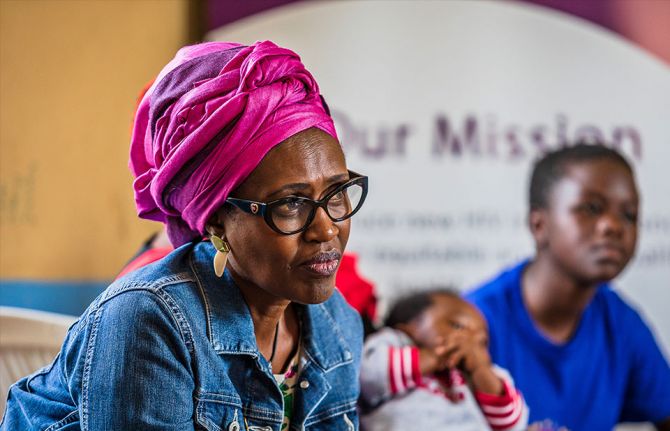
Opinion
Successful global epidemic responses put people at the centre
12 March 2020
12 March 2020 12 March 2020The COVID-19 outbreak is rightly shining a light on international and national responses to health emergencies—exposing gaps in our systems, showing our strengths and drawing on the valuable experience of responding to other health threats, such as HIV. At UNAIDS, we know that people living with HIV will have some anxiety and questions about the emergence of the virus that causes COVID-19. One of the most important lessons to be drawn from the response to the HIV epidemic is to listen and learn from the people most affected. UNAIDS continues to do so.
It’s important to underline that there is currently no strong evidence that people living with HIV are at an especially increased risk of contracting COVID-19 or, that if they do contract it, they will experience a worse outcome. As in the general population, older people living with HIV or people living with HIV with heart or lung problems may be at a higher risk of getting the virus and of suffering more serious symptoms. As for the general population, people living with HIV should take all recommended preventive measures to minimize exposure and prevent infection. As COVID-19 continues to spread around the world, it will be important for ongoing research in settings with a high prevalence of HIV in the general population to shed more light on the biological and immunological interactions between HIV and the new coronavirus.
But legitimate measures to contain the virus may have unintended adverse effects on people living with HIV. When the COVID-19 outbreak began in China, UNAIDS conducted a survey of people living with HIV to listen to their needs. A follow-up study has shown that some people living with HIV are beginning to experience challenges in receiving medicine refills. This is leading to some anxiety. In response, UNAIDS has been working with networks of people living with HIV and government officials to support special deliveries of medicines to designated pick-up points. A hotline has been established in China so that people living with HIV can continue to express their concerns while the outbreak persists. With our partners, we will also be closely monitoring developments in global supply chains to ensure that essential medical supplies continue to reach the people who need them and that disruptions to the manufacture of active pharmaceutical ingredients are kept to a minimum.
UNAIDS calls upon countries preparing their COVID-19 responses to ensure that people living with HIV have reliable access to their treatment medications. It’s now urgent that countries fully implement current HIV treatment guidelines from the World Health Organization for multimonth dispensing, ensuring that most people living with HIV are given three months or more of their medications. This will help to alleviate the burden on health facilities should COVID-19 arrive and allow people to maintain their treatment regimens uninterrupted without having to risk increased exposure to COVID-19 when retrieving their medicines.
A primary lesson from the AIDS response is that stigma and discrimination is not only wrong but counterproductive, both for an individual’s own health and for public health outcomes in general. That’s why UNAIDS has been supporting campaigns to reduce stigma and discrimination faced by people affected by COVID-19. We have never beaten a health threat through stigma and discrimination and our response to COVID-19 must be guided by lessons learned through the response to HIV. This includes listening to people affected by the outbreak and establishing trust and communication between people affected and health authorities, even before the disease burden rises.
Our biggest gains against HIV have come in countries that have reduced stigma and discrimination, encouraging people to test for the virus and to seek treatment if necessary. Using communication channels recommended by public health experts, let’s listen to people affected by COVID-19 and apply their lived experience so that we can strengthen our response to the virus.
The deaths caused by the COVID-19 outbreak are tragic and my thoughts go out to their families and loved ones. But if we are smart, the international community and individual countries will use this experience to further strengthen monitoring systems and make adequate investments in health infrastructure, both at the global and national levels. UNAIDS urges governments and health officials across the world not to delay in implementing public education programmes for all their citizens about the practical measures that should be taken to curtail the transmission and spread of the virus at the local level.
A people-centred approach is critical. Everyone must have the right to health—it’s our best defence against global epidemics.
Winnie Byanyima, UNAIDS Executive Director
Related information
Related

Opinion
To end the AIDS epidemic, start focusing on adolescents
17 February 2015
17 February 2015 17 February 2015By Anthony Lake, UNICEF Executive Director and Michel Sidibé, UNAIDS Executive Director
When you are an adolescent, you are supposed to feel as if you could live forever. And, indeed, adolescents are less vulnerable to disease and more resilient. Their survival rates are as high as their youthful spirits.
But HIV changes everything. It is shocking that more adolescents die every year from AIDS-related illnesses than from any other cause except road accidents. In 2013 alone, 120 000 adolescents died from AIDS-related causes: more than 300 every day.
It is even more shocking that the number of adolescents dying of AIDS is not decreasing when AIDS-related deaths have dropped in every other age group. And it is shameful that this is happening when we have the knowledge and tools to keep adolescents living with HIV alive and well and to prevent new HIV infections.
What can we do to bring back the invincibility of youth? We must begin at the beginning—and stay with adolescents throughout their lives.
The vast majority of adolescents who died of AIDS-related illnesses in 2013 acquired HIV during pregnancy, delivery, or in the first months of life—because their mothers were not receiving the antiretroviral medicines that greatly reduce the possibility of HIV transmission. Although we have made great strides, far too many mothers and their infants are still not getting the HIV services they need to survive and thrive.
The remaining 20 per cent of adolescents living with HIV were infected as adolescents—an uncomfortable fact whose causes we need to honestly confront.
More than 250 000 15 to 19-year-olds were newly infected with HIV in 2013—and they are overwhelmingly girls. In that age group, girls account for two out of three new HIV infections globally. In sub-Saharan Africa, that number jumps to nearly eight out of ten. In South Africa, more than 800 girls in this age group are infected with HIV every week.
Girls are more vulnerable to HIV because they are more vulnerable generally—to violence, including sexual violence, forced marriage and trafficking. They are far less likely than boys to have the information they need to protect themselves, but even if they have that information, they may not be empowered to use it.
The remainder of young people who acquire HIV during adolescence are often gay and bisexual boys, and boys and girls engaged in using drugs or selling sex. Many are never diagnosed, let alone treated—because they fear repercussion if they seek information, enter prevention programmes, or get tested.
Many adolescents feel misunderstood, but when it comes to HIV and adolescents, it is not just a passing phase. National health plans and health systems in the most affected countries do not track or focus on adolescents—and there is precious little data monitoring their health and development over the age of five. Too old for paediatrics and often deemed too young for adult health services, many adolescents fall through the cracks at a time they most need our attention.
We must do more to protect all adolescents and empower them to protect themselves and their health. In fact, we cannot end the epidemic without a global movement to end AIDS-related deaths and new HIV infections among adolescents.
There are promising signs that such a movement is gathering force. More programmes are reaching out to adolescents, many steered by young people themselves. More countries are including adolescents in national AIDS agendas.
The United States of America recently announced a new investment of US$ 210 million to prevent new HIV infections among adolescent girls and young women. The Global Fund to Fight AIDS, Tuberculosis and Malaria recently announced US$ 14 billion in grant money, with a commitment to include a focus on the adolescents at greatest risk.
We need to build on this momentum. This week, leaders working to end the AIDS epidemic are coming together in Kenya to call for a new global target of reducing AIDS-related deaths among adolescents by 65% and cutting new HIV infections among adolescents by 75% in the next five years.
This ambitious goal is the centrepiece of All In, a new platform for action to end adolescent AIDS. It concentrates on the areas where we need to accelerate progress: from improving data to identify the young people we are missing and provide a sharper focus on adolescents in national AIDS programmes…to fostering innovation in developing new technologies and approaches to engage adolescents more effectively...to advocating for more resources to reach every adolescent living with, or at risk of acquiring, HIV, before it is too late.
Most of all, young people themselves need to be ‘all in’ to end adolescent AIDS. Already, they are helping steer this movement, calling for positive change. The more we engage them and support their leadership, the more successful our common efforts will be to end this epidemic together.
Anthony Lake is the Executive Director of UNICEF. Michel Sidibé is the Executive Director of UNAIDS.
All In to #EndAdolescentAIDS
All In to #EndAdolescentAIDS is a platform for action and collaboration to inspire a social movement to drive better results for adolescents through critical changes in programmes and policy. It aims to unite actors across sectors to accelerate reductions in AIDS-related deaths and new HIV infections among adolescents by 2020, towards ending the AIDS epidemic for all by 2030. It is convened by a leadership group that includes UNAIDS, UNICEF, UNFPA, WHO and PEPFAR, as well as the Global Fund to Fight AIDS, Tuberculosis and Malaria, the MTV Staying Alive Foundation and the adolescent and youth movement represented by the HIV Young Leaders Fund on behalf of the PACT and Y+.
Contact
UNAIDS NairobiMichael Hollingdale
tel. +41 79 500 2119
hollingdalem@unaids.org
UNICEF Nairobi
Natalie Bailey
tel. +254 735 620076
nbailey@unicef.org
Related
 “Who will protect our young people?”
“Who will protect our young people?”

02 June 2025




